Most of the International Drillers recall the high wages they received for working abroad and many lived in greater luxury than they did at home, however each country presented its own set of dangers and risks, from climate and disease to local unrest.
The International Drillers often worked in unbearably hot climates. Ross Dyke worked the night shift in Egypt, where temperatures rose above 100 degrees in the shade, in order to escape the worst of the heat and Arthur Lambert described how in Southern Nigeria the air was so humid that mold grew on the drillers' clothing and shoelaces. Diseases and infections such as malaria, cholera, and tropical fever also posed a threat to the International Drillers. Ernie Kells and Edward Winnett recovered from their illnesses but J.W. Crosbie and Humphrey Tracy both died far from home. The International Drillers were also in danger from the local wildlife. Snakes, including pythons and boa constrictors, were frequent visitors to the drilling rigs.
Working conditions at the turn of the century would be a shock to most people in the oil business today. All moving and mechanical parts of the drilling rigs were open and there was nothing to stop a stray piece of material from getting caught in one of the machines. Video recorded by Eric Hussey in India shows some of these conditions. Ross Dyke glossed over a serious injury, which he referred to as a "bad fall", in one of his letters in which he described catching his foot in a rope and being thrown onto his head. Flora McDonald married an engineer who was killed when a gas valve blew out and she was given ten days to leave Peru with her two children. Duncan McIntyre suffered 22 broken bones when a two-tonne pump fell on top of him and his injuries were so severe that no one thought he would survive.
The relationship between the International Drillers and the local people was sometimes strained. Edward Winnett wrote in his journal about being attacked one evening outside of his bungalow by a group of locals and always slept with his gun by his bedside. Albert Huggard was poisoned by the natives of Madagascar during dinner one evening. In a letter to a friend, Julia McGarvey described feeling nervous and timid while living in Grosny, Russia. "In going back and forth from Grosny to the wells which are 12 or 14 miles, James [her husband] always carries a revolver, but at the same time assures me 'there is absolutely no danger' (if there is not, why carry a revolver)." Some of the International Drillers were even caught in the crossfire during the First World War.
Despite these important risks, the International Drillers continued to pursue work in countries all over the world and some drillers returned for several more contracts. High wages and excitement were a strong pull for the drillers and as a result, they left their mark on oil fields in over 80 countries worldwide.



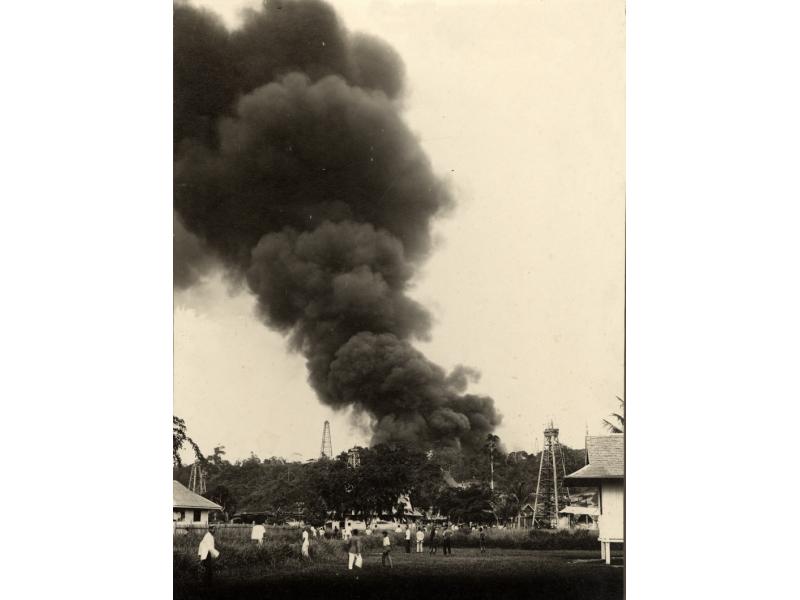 A fire at one of the oil rigs at Miri, Sarawak (Malaysia) killed one International Driller.
A fire at one of the oil rigs at Miri, Sarawak (Malaysia) killed one International Driller. 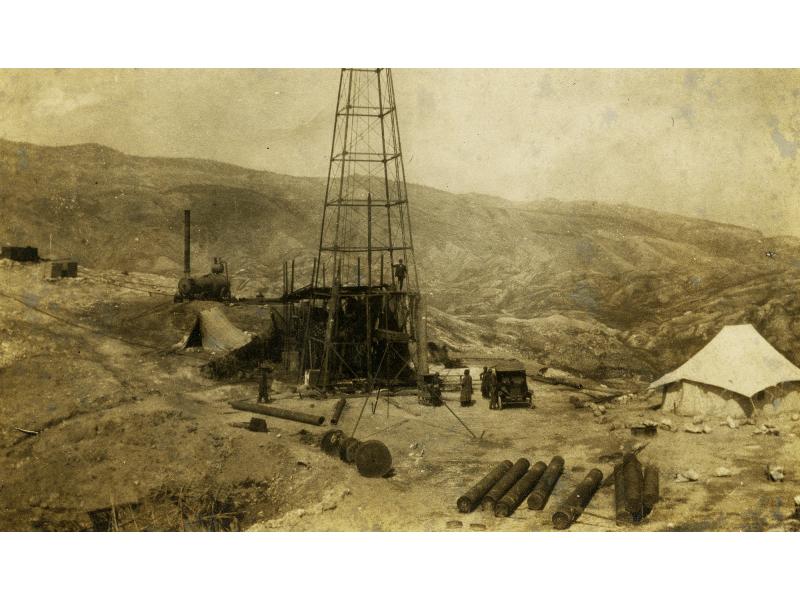 International Drillers worked in the deserts of the Middle East where temperatures soared under the hot sun.
International Drillers worked in the deserts of the Middle East where temperatures soared under the hot sun. 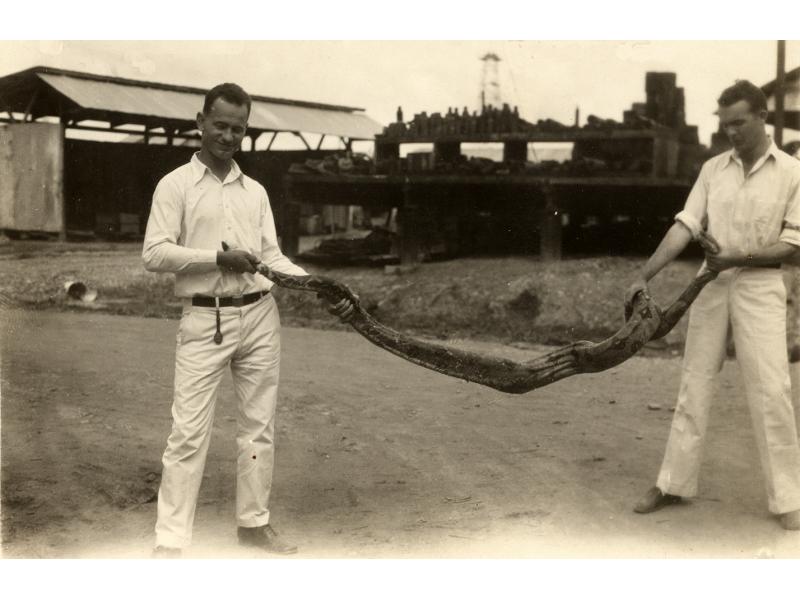 Two International Drillers caught a boa constrictor near their drilling rig in Colombia.
Two International Drillers caught a boa constrictor near their drilling rig in Colombia. 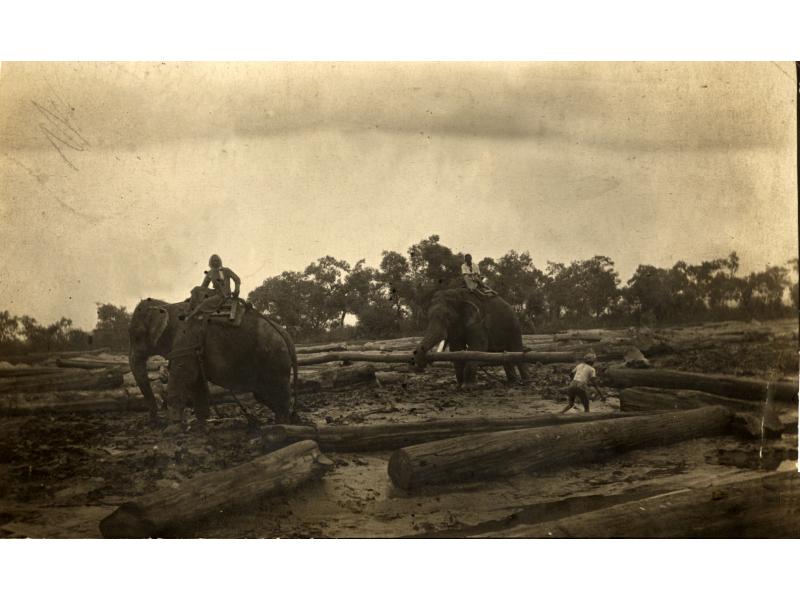 Large animals were sometimes used to assist with heavy labour, such as these elephants stacking logs in Rangoon, Burma (Yangon, Myanmar).
Large animals were sometimes used to assist with heavy labour, such as these elephants stacking logs in Rangoon, Burma (Yangon, Myanmar). 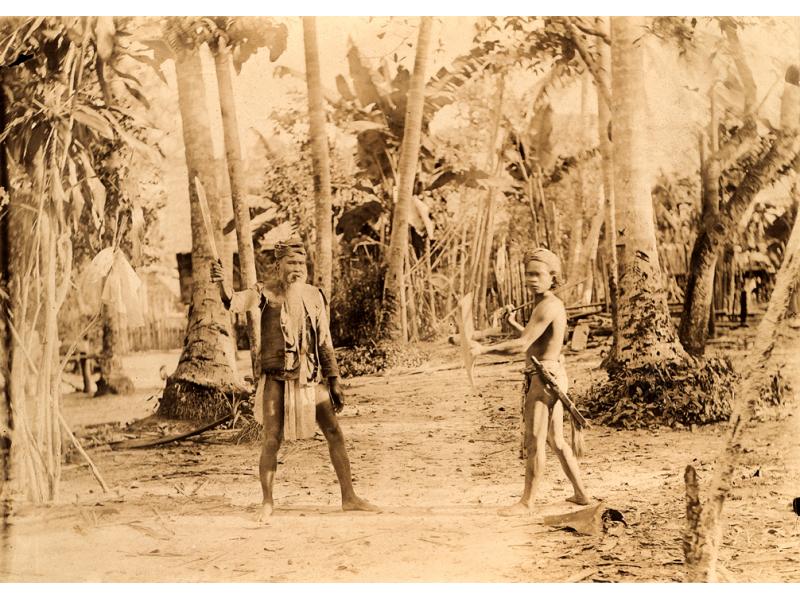 Two Batak natives in Borneo, holding blades.
Two Batak natives in Borneo, holding blades. 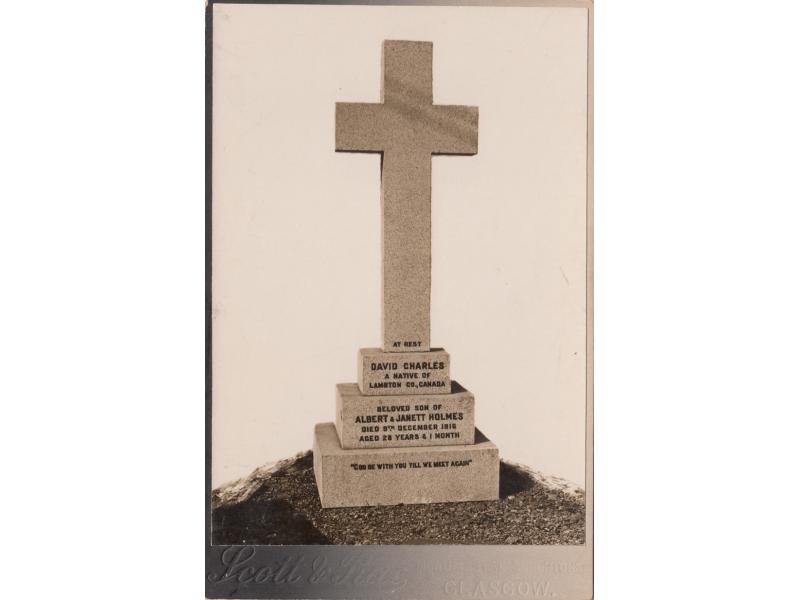 Grave marker of David Charles Holmes who died in Iran after drinking contaminated water.
Grave marker of David Charles Holmes who died in Iran after drinking contaminated water.
Add new comment